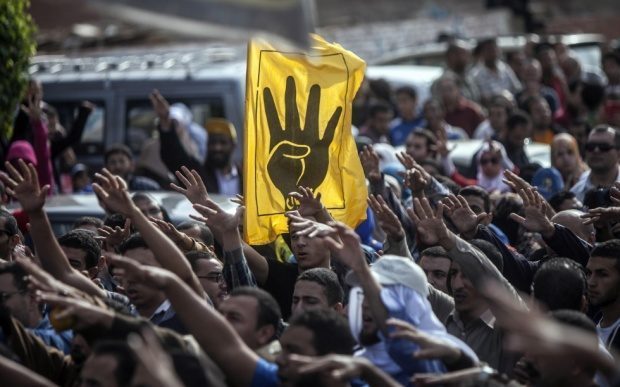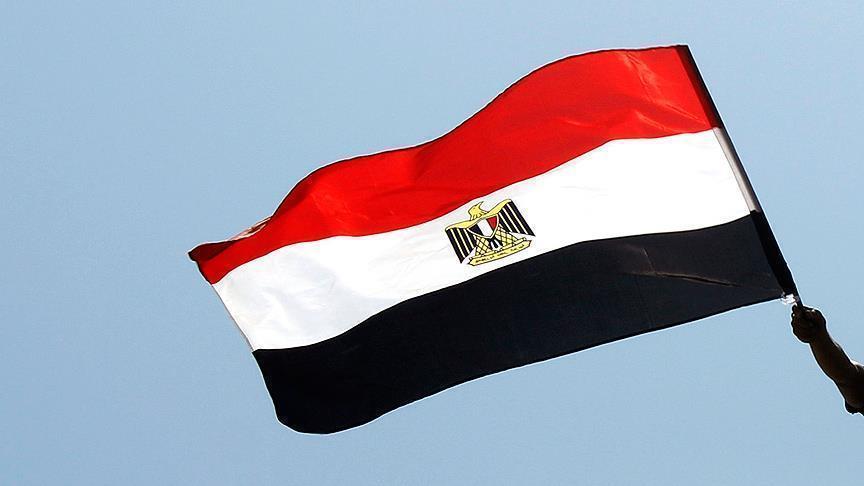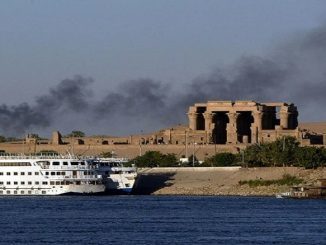
The recent report released by UK Parliament’s Foreign Affairs Committee (FAC) about the Muslim Brotherhood said that “the evidence so far in Egypt is that if the Muslim Brotherhood supported or condoned violence, then Egypt would be a far more violent place today, “which means that the Muslim Brotherhood didn’t use violent means in its practices.
The FAC report released on November 6 said that, “the British Minister of Foreign Affairs should condemn the influence practiced by Egypt’s military in politics as contrary to UK values.” The recommendation was based on the FAC investigations on how the British government dealt with the Muslim Brotherhood.
The British parliament has formed a committee led by Crispin Blunt, the head of the parliament’s foreign affairs committee to investigate the British government’s policy in dealing with the Muslim Brotherhood.
In fact, the Foreign Office was previously criticized by MPs for their “misguided” report on Egypt’s Muslim Brotherhood, according to The Telegraph.
The Foreign Affairs Committee said that appointing Sir John Jenkins, the ambassador to Saudi Arabia, to lead the “secretive” review gave the perception a foreign state had “undue influence” over the report.
The committee report said: “Notwithstanding his knowledge, experience, and professional integrity, Sir John Jenkins’s concurrent service as UK ambassador to Saudi Arabia made his appointment to lead the Muslim Brotherhood Review misguided.
“It created the impression that a foreign state, which was an interested party, had a private window into the conduct of a UK Government inquiry.”
Main points in the new FAC report
1- It criticized the UK government’s main findings on the Muslim Brotherhood saying, “Its published Main Findings had significant shortcomings that have damaged the UK’s reputation. The Review aimed to understand the Brotherhood, but its Main Findings neglected to mention the most significant event in the Brotherhood’s history: its removal from power in Egypt in 2013, the year after being democratically elected, through a military intervention.
2- Another “omission “is the FCO’s assessment that understanding the Brotherhood “did not require” an examination of events following this removal from power, including the killing in August 2013 of large numbers of protesters who sympathized with the Brotherhood, and the continuing repression of the group in Egypt and elsewhere.
3- It also noted that Sir John Jenkins’s appointment to lead the Review, while he served as UK ambassador to Saudi Arabia, was misguided. It created the perception that Saudi Arabia, an interested party that had designated the Brotherhood as a terrorist organization the month before the Review was announced, might have undue influence over the Review’s report.
4- It clearly condemns military governments (like the one in Egypt now) and stresses that they act in contravention of British values, calling for “standards to be applied to all and not just to the Islamists”.
5- The Muslim Brotherhood is a secretive group, with an ambiguous international structure. But this is understandable given the repression it now experiences. The review makes a clear distinction between alleging that the Muslim Brotherhood is a “secret” organization, which the parliamentarians conclude is a false claim, and describing it as “secretive”, which is understandable in view of the repression it has been subjected to in Egypt and elsewhere in the region.
6- Some communications, particularly from the Brotherhood, have given contradictory messages in Arabic and English. And some of the responses that the group offered to our questions gave the impression of reluctance to offer a straight answer. The FCO is right to judge political Islamists by both their words and their actions.
7- Some political Islamists have been very pragmatic in power. Others have been more dogmatic. But fears over the introduction of a restrictive interpretation of ‘Islamic law’ by the Freedom and Justice Party (FJP) in Egypt were partly based on speculation rather than experience.
8- The UK has not designated the Muslim Brotherhood as a terrorist organization. We agree with this stance. Some political-Islamist groups have broadly been a firewall against extremism and violence.
9- Political-Islamists and their sympathizers argued that their emphasis on non-violence and democracy meant that, far from being a ‘conveyor belt’, political-Islamist groups acted as a ‘firewall’ against extremism. Repressing them, they argued, was the true driver of extremism.
10-It recommends that “moderate Islamists” in the Middle East and North Africa region should be included in dialogue, and should not be excluded from the democratic process.
11-The report said that based on the experience of Tunisia, political Islam could in some countries be a way of providing a democratic alternative for political, social, and economic development and a counter-narrative against more extremist ideologies.
Will the new report change the British government policy toward Egypt’s military regime?
Last September, Huffington Post (UK edition) published an article that criticized Britain and the extraordinary relationship with the military rulers of Egypt saying that UK’s new relationship with the autocratic military government in Egypt is worrying.
Since the military coup led by General Abdel Fattah al-Sisi against Egypt’s first democratically elected president Mohamed Morsi in July 2013, “Egypt has once again become a nasty, repressive regime,” said the Huffington Post.
The military regime has launched a massive crackdown against human rights: torture, deaths in detention, forced disappearances, restrictions on civil society, the imprisonment of journalists and restrictions on freedom of expression.
Almost 40,000 Egyptians have been arrested by the regime since the military coup for opposing the regime and their participation in protests. During the first days of the coup between July and August, more than 1,000 people were killed” when the new regime conducted clearing operations to remove Muslim Brotherhood protesters from sit-ins in Cairo,” said the post.
But despite all these non-humanitarian policies adopted by the bloody coup, for Britain, “this all represents a new opportunity,” as both countries have enhanced the security and economic relations since al-Sisi reached power.
Moreover, during the British Minister of Defense’s visit to Egypt on September 16, he said that Cairo is a key partner and that the two countries will continue to work together to fight terrorism and achieve security and stability in the region. He said that UK will expand the training support for the Egyptian Armed Forces.
In a statement, Fallon praised the “vital training” which he said had “helped Egyptian Armed Forces to defuse dangerous devices as they tackle the threat from our common enemy – terrorism.”
He said, “We are now going to step up co-operation with our Egyptian allies to help them increase training capacity in their Armed Forces.”
Britain has trained more than 80 EAF personnel in countering improvised explosive devices and close protection in the United Kingdom in 2015-2016, and under the new pledge the country will extend training to hundreds of Egyptian army personnel.
Fallon also highlighted the arms trading relationship between the two countries.
He said, “Egypt is a key partner, and we will continue to work together to achieve security and stability in this region.”
In the same context, in May 2016, Amnesty International‘s report condemned the widespread use of British troops to train the security forces of regimes which – like Egypt – feature on the UK’s own human rights watch lists.
The report said that despite the EU suspension on arms transfers to Egypt, almost half of European Union (EU) member states have violated the sanctions.
The report reads,” After hundreds of protesters were killed in a show of grossly excessive force by security forces in August 2013, 12 out of 28 EU member states have remained among Egypt’s main suppliers of arms and
policing equipment. It is feared that EU Foreign Ministers could soon decide to scrap the current, already insufficient, suspension.”
According to Amnesty’s report, EU states authorized 290 licenses for military equipment to Egypt, totaling more than €6 billion (US$6.77) in 2014 alone. The items have included: small arms, light weapons and ammunition; armored vehicles; military helicopters; heavier weapons for use in counter-terrorism and military operations; and surveillance technology.
The EU countries who have been supplying arms to Egypt through exports or brokering since 2013 are: Bulgaria, Cyprus, Czech Republic, France, Germany, Hungary, Italy, Poland, Romania, Slovakia, Spain and the UK.
According to Privacy International, the Egyptian authorities were also supplied by companies from several EU countries, including Germany, Italy and UK, with sophisticated equipment or technologies destined for use in state surveillance, which Amnesty International fears may be used to suppress peaceful dissent and violate the right to privacy.
In the end, until now the British government practices seem to undermine human rights standards as well as the UK values when it comes to politics and interests, but will the new Foreign Affairs Committee’s report pave the way for changing the British government’s attitude toward the military regime in Egypt and the Muslim Brotherhood?



